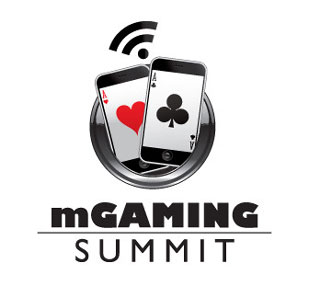You can be the owner of the most wonderfully looking, incredibly addictive gambling mobile product. But if the consumer can’t get their money on and off then there is no product, and that is exactly what the topic of discussion was when four fine gentlemen gathered at the head table of the mGaming Summit in London.

Siamac Rezaiezadeh, Strategic Accountant Executive at OpenMarket, David Hunter, CEO at Ukash, Rory Maguire, principal at rmcommerce and Simon Wilson, the founder of mFortune put their heads together to discuss what many believe to be the key to the future of mobile gaming – mobile payments.
The panel all agreed that the current modus operandi for consumers was to supplement their accounts via desktop, a habit that wasn’t sustainable for the future growth of the mobile space. It was felt that the actual security issues were very minimal, but it was the perception that a mobile device is not as secure as a tablet or desktop that was the problem. It wasn’t that long ago that the consumer were worried about parting with their cash in the desktop space, so it’s just a process of evolution before mobile processing becomes equally as familiar.
“It’s still a worry for the consumer,” said David Hunter, “It’s not black and white. The consumer needs to build up a relationship with the mobile brand. It will take time but eventually there will be trust and the consumer will feel more comfortable making a payment.”
History has not been kind to mobile processing with the Jamster ‘Crazy Frog’ ringtone scandal still fresh in the consumers memories. The children, whose bums were spanked by their parents for spending exorbitant amounts of cash on the worst ringtone you could imagine, were now the generation of new mobile users. Once bitten, twice shy, even by a frog.
“There has been massive improvement in mobile payment education within the industry. We have come a long way in the past five years. The perception is improving and the number of consumer complaints is reducing year-on-year.” Said mGaming Summit sponsor Siamac Rezaiezadeh.
Rory Maguire, who sits on the board of directors at the Association of Interactive Media and Entertainment (AIME) agreed with the regulator, “What AIME is good at is getting competitors around the table to talk about problems and issues; finding resolutions and creating codes of practice for the industry as a group.”
Maguire believes that the next point of call for the combined force of the gambling operators should be the mobile network operators. Whilst mobile may be the next big thing for the gambling industry it’s still just a tiny piece of the pie for the mobile network operator. Trying to lift deposit restrictions like the £30 imposed by Orange is a classic example of the problems that the gambling operators face, when deciding to shift resources away from desktop and onto mobile.
When a consumer has a thought about playing on a mobile gambling game, then the operator needs to make his journey as quickly and efficiently as possible. This simply isn’t the case as was demonstrated by Rezaiezadeh.
“We work with a lot of charitable companies and a recent study of the top 20 UK charities showed that it took consumers five minutes to make a donation via the web, compared with sub 10-seconds on a mobile device.”
And that’s the crux of the matter when it comes to payment processing. It’s all about attrition. The patience of modern man is thinner than floss.
So what does the future look like?
According to Hunter, the future is a place where the consumer doesn’t even carry a card. Instead everything is completed by the point and click methodology of the mobile device. He cited the ‘1-Click’ option used by Amazon as evidence of the speed at which we should be doing things.
But it’s one thing for the operators to create and supply these options, but do the consumers really want them? Rezaiezadeh told the delegates that at the recent Mobile World Congress in February there were two registry cues, one for the people to physically collect their badge and another for near field communication (NFC) entry. In an event created by mobile users, for mobile users and the NFC line was completely empty.
